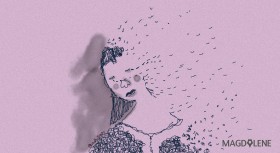Do you enjoy reading Indonesian fiction? I do. And as I aged, I believe Indonesian fiction landscape caters to almost every lowbrow person’s needs for a fulfilling read. Throughout my adult years, I’ve enjoyed reading (and thrown away) an array of fiction works, ranging from long novels to collections of short stories.
Some of these books can take you to places you could never go to (the early days of post September 30th, 1965 in a small Java town? Yes, please!). Or sometimes they allow you to experience the life of the average Joe in urban Jakarta (does the name Sukab ring a bell, dear Seno Gumira Ajidarma lovers?)
I believe reading books enriches our lives, but I have to admit that while I graduated from law school, have a career, and am a mother of three, my book selection does not always reflect my background or my political leaning.
So I’ve come up with a list* of Indonesian works of fiction that you can read to serve your every whim:
1. When you want to be easily impressed by well-researched books with pretentious premises.
I recommend anything by Dee Lestari (but not her Filosofi Kopi, which is excellent) and ES Ito’s Rahasia Meede. In Dee Lestari’s book you’ll encounter your first Schrodinger’s Cat (a wicked way to kill a cat) and how fungus is related to alien. Or a life-changing experience trip to Tibet with one-dimensional characters whose mere existence is to serve the plotline necessity. Similarly, Rahasia Meede (Meede's Secret), which tells of the promise of the biggest fortune ever in Indonesia’s contemporary history, is a well-researched novel. It could leave you in an everlasting state of amusement that our forefathers were actually bounty hunters in disguise. One last note about Dee Lestari, she’s actually very good in writing short stories, and she has an excellent sense of humor. I strongly urge her to write more short stories and less stories that go on and on for 75 pages or more. And of course, she should write more songs.
2. When you want to be mesmerized by outstanding storytelling and could care less what the story is all about.
You know the feeling, the urge to flip pages after pages of a story with characters so interesting, despite their illogical ways of thinking. Enjoy Cantik Itu Luka (Beauty is Pain) by Eka Kurniawan, about a prostitute who rose from the dead in an imaginary coast of West Java during the early days of the republic. Or knock yourself out in AS Laksana’s Murjangkung, Cinta yang Dungu dan Hantu-Hantu (Murjangkung, Foolish Love and Ghosts), a collection of short stories so enjoyable you have a hard time picking your favorite. After you finish these two books, all you can remember is how you’ve enjoyed your experience, though you might be left wondering what the story is all about. Did she really fall in love with a geriatric? Did the writer seriously think that Cornelis de Houtman died from diarrhea?
3. When you care enough to educate yourself about Indonesia’s past, without appearing too much like a history geek.
Iksaka Banu’s Semua Untuk Hindia (All for the Indies) and Leila S Chudori’s Pulang (Coming Home) are both an enjoyable way to steep yourself in history without the guilt that usually follows after realizing that all these times you’ve been so ignorant of your country’s multi-faceted history. For the highbrows, Laksmi Pamuntjak’s Amba provides a different perspective on one of the darkest chapters in Indonesia’s history that makes you question everything your PSPB (National Struggle History) teachers taught you back in middle school. Included in this list is Gadis Kretek (Clove Girl) by Ratih Kumala, a seemingly lighthearted story about tracing the family history of a clove cigarette empire that actually weighs more than it pretends to.
4. When you want to nurture your empathy or feel the tug of social calling for the unfortunates.
Perhaps a bit for a discerning taste, but Tarian Bumi (Earth Dance) by Oka Rusmini would make you silently thank your fate for not having been born a woman in a strict caste system of a rural Balinese village. Saksi Mata (Eye Witness, now instilled in Tragedi Insiden/Incident Tragedy) by Seno Gumira Ajidarma and Rumah Kopi Singa Tertawa (Laughing Lion Coffee House) by Yusi Avianto Pareanom, both collections of short stories, also make this category’s shortlist. Saksi Mata short stories follow the events after the massacre in Santa Cruz, Dili in 1991, when much of Indonesians were unaware that their country was invading Timor Leste. And Rumah Kopi Singa Tertawa will randomly pick a human tragedy (like a lovers’ quarrel that ends in suicide or an incestuous father) as an unsettling yet delightful read. When life gives you not enough lemon, bite into these books.
5. When you want to be a born-again Indonesian.
I assume you’ve read them all, from Pramudya Ananta Toer’s Tetralogy (Bumi Manusia, Anak Semua Bangsa, Jejak Langkah and Rumah Kaca), Saman by Ayu Utami, Para Priyayi by Umar Kayam and Sihir Perempuan by Intan Paramaditha. Also AA Navis’s Robohnya Surau Kami and Sri Sumarah, a collection of short stories, also by Umar Kayam. Some of them are very simple stories like ailing parents posed as cautionary tale of womanhood. But in each of their pages these books challenge us with tough questions: Whatever happened to Cinderella stepsister? Or harder ones: how does one say goodbye to his wife before he’s executed? And much harder: how come a person who has devoted his life to performing religious rituals will wind up in hell instead in heaven in the afterlife? Rest assure, you’ll finish each book with a renewed love for your countrymen and women who had enough intellect to write these gems.
This is a very short list that represents a tiny facet of Indonesian fiction. I’d like to see other interesting books out there to provide me with mini adventures. Now it’s time for you to share your list.
* I did not put any Andrea Hirata's book in this writing as well as the so-called religious theme books, because those books just ask too much from me. The same goes to any books by Djenar Maesa Ayu.
Gita Putri Damayana is a self-proclaimed good mother of three kids and pretentious wife of a model citizen. A law graduate from University of Indonesia with no particular distinction at all, but who is highly opinionated on almost anything under the sun. She casts herself as the mirror image of actress Dian Sastrowardoyo, while maintaining a health regime of Mama Hengky, the famous 80's comic.








Comments